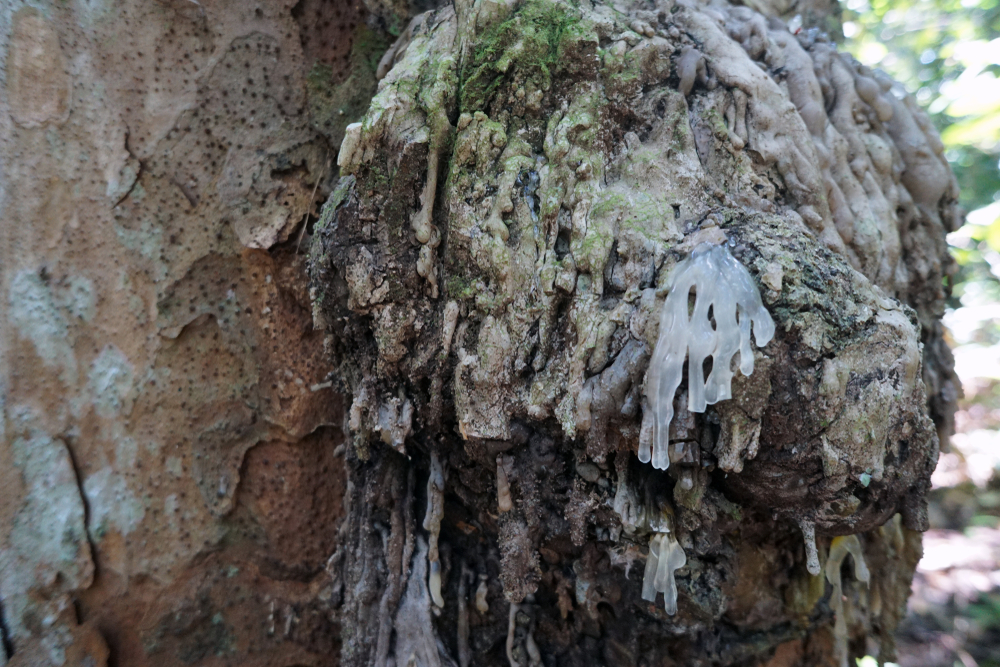With the help of a little-known resin called damar.

Deforestation for palm oil plantations is considered one of the biggest threats to tropical ecosystems across the world.
Palm oil is incredibly popular, extremely profitable, and found in dozens of products that are likely in your house right now. But it’s also a huge driver of deforestation, habitat loss, labor violations, and greenhouse gas production, especially in Southeast Asian countries like Indonesia and Malaysia.
For palm oil farmers, palm oil represents a way to make a living in an industry that’s historically made profitability a very difficult achievement. A new story from Julia Simon at NPR, though, suggests an alternative: agroforestry—the use of trees to encourage a thriving ecosystem on a farm.
The environment that’s host to many of the world’s palm oil plantations is dense rainforest. Despite its lushness, rainforest does not have especially good soil for row crops, so to make a living from agriculture, farmers have to look to trees—hence, palm oil. But there are other trees that can grow there in a much more sustainable way.
The NPR story highlights a particular variety of agroforestry that relies on damar, a resin produced by a group of trees native to Southeast Asia. Damar is a gum ranging in color from off-white to brownish, and is quite popular in varnishes, paints, and glazing materials. It’s an under-the-radar product, but useful, with a consistent market.
In Indonesia, some farmers use damar as a fundamental part of agroforestry. Indonesian forests have multiple vertical levels, and these farmers are trying to reproduce that system, except with crops they can harvest. So the canopy level, up at the top, consists of damar-producing trees. Lower levels may include smaller trees or bushes, like coffee, avocado, or durian.
This system encourages local plants to stay put, and even places non-local crops, like the avocado (native to Mexico), in a position where they can fill typical roles in the ecosystem. That allows animals and other plants to continue to live in these forests—all without removing a farmer’s livelihood.
Palm oil is too profitable, and too large a market, to convince any huge numbers of people to move away from it—unless there’s an alternative that can also provide a stable, comparable income. Damar may not have the ability to scale to that degree, but these agroforestry projects could provide a path forward.